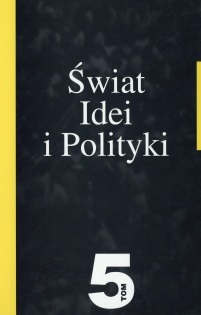A stereotype of politician. The models of political leaders' personality in the publications of "Nasz Dziennik"
DOI:
https://doi.org/10.34767/SIIP.2005.05.01Abstract
The political leadership concerns a special kind of performed assignments, arriving at a decision of a greater meaning and rank than the resolutions of other kind of leaders. It is related to power domain that is bigger in comparison with the non-political leaders, because it includes more numerous and more varied measures of authority. This problem is analysed by the authors of publications in "Nasz Dziennik". They comment on the present political and social situation in Poland to show who should be their ideal. As shown by this study, this vision is characteristic of all groups connected with the daily. Due to their association with the same group of media, consumer people who are different in respect of sex, profession and social group activities, share similar opinions. A scientific background accumulated by the author of the articles, takes also the opinion of the newspaper's readers into account. The analysis of these texts is to compose the models of political leaders. personality to answer the question - what is the 'ideal' promoted by "Nasz Dziennik". Because of the radical language used in this newspaper, the author examines the positive and negative qualities of political leaders to build a true image. The article shows that the anti.model of political leaders created by the daily contains a criticism of liberals, democrats, autocrats, tripe and figure heads and career bureaucrats. They all are the worse group of leaders due to having the greatest power and access to the media. Although we find many rationalized arguments in their negative opinions, the impression is the same - bad are those who govern. The criticism not only deals with democratic.liberal parties, but it was also leveled at AWS at the end of its regime. The situation of this last party did not live up to the expectations of "Nasz Dziennik", as such models are impossible to realize. The model is not interchangeable. In the articles, we find the opinions which refuse an ideal role of a particular person in leadership, but at the same time we can hear the voices for building programmes and visions around a strong authority.

